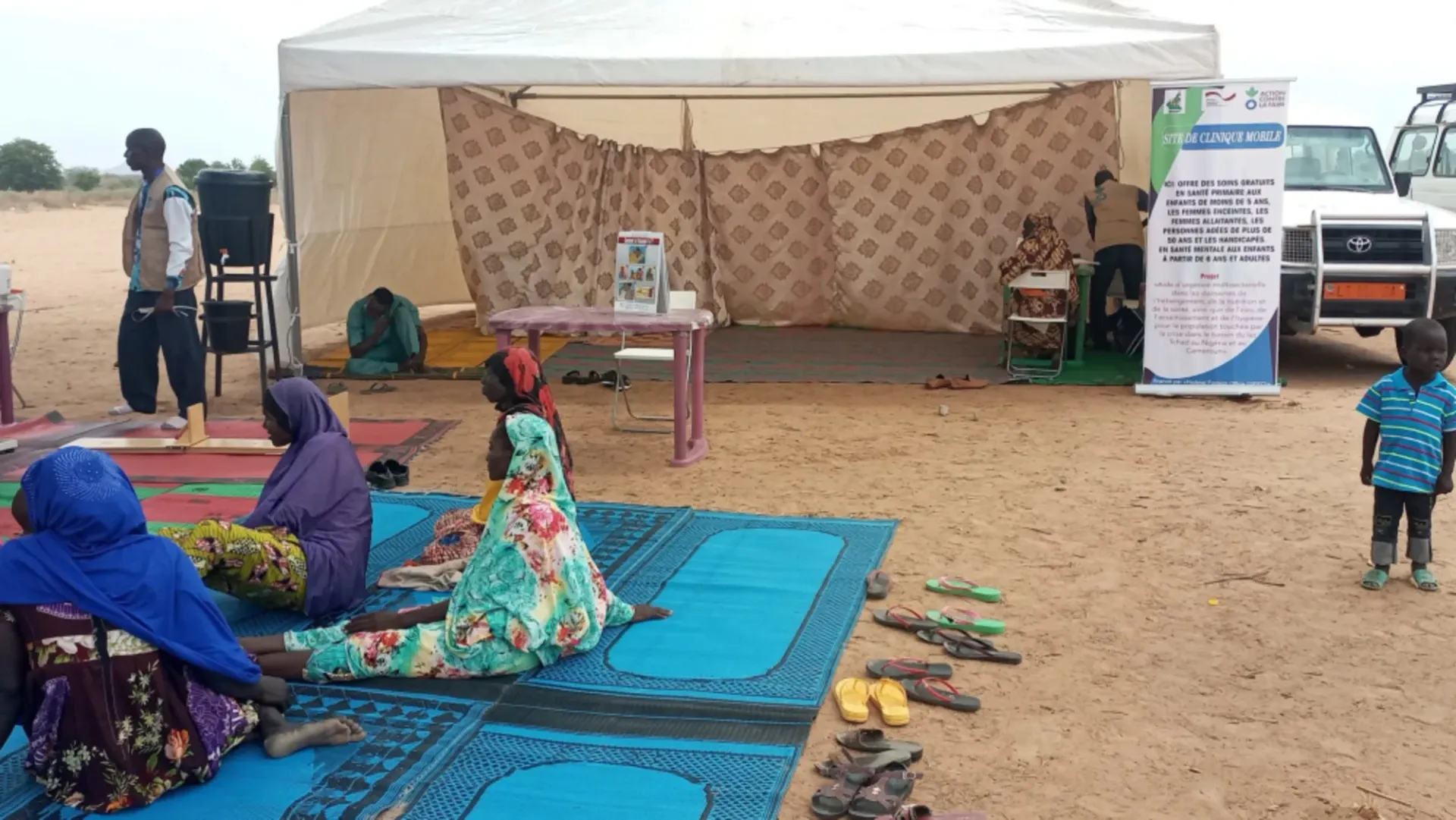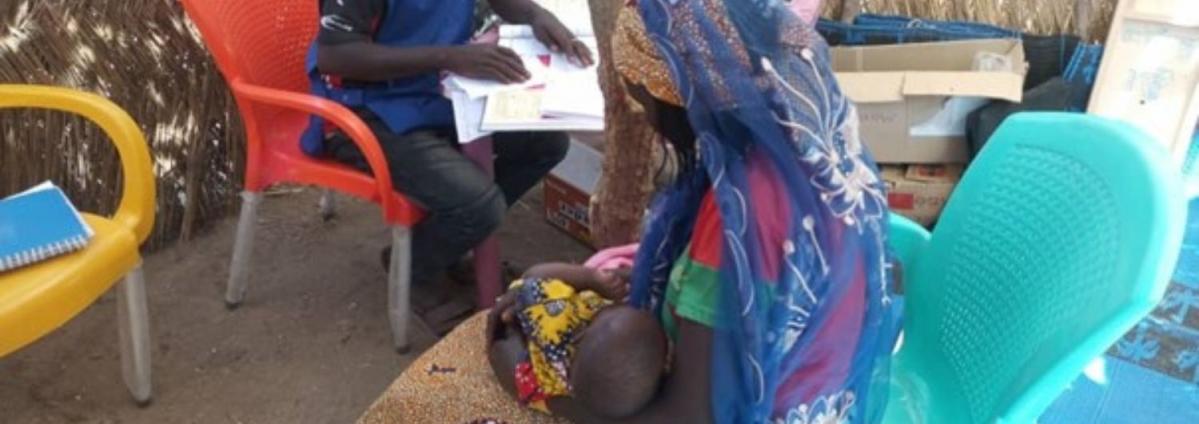
Humanitarian context
Cameroon is facing three simultaneous humanitarian crises. The first occurs in the far north of the country, near Lake Chad and Nigeria. The second takes place in the northwest and southwest regions, where armed groups are in conflict with the government. Finally, the third crisis affects the neighbouring Central African Republic.
Violence and lack of security have forced thousands of people to leave their homes. Cameroon is currently hosting more than 502,000 refugees and asylum-seekers. These three humanitarian emergencies also impact the communities that provide shelter, as they must share their scarce resources and basic services with the displaced. The COVID-19 pandemic further aggravated humanitarian needs and has tested an already fragile health system.
In total, 3.9 million people in Cameroon were declared acutely food insecure in 2022.
BENEFICIARIES
WORKERS
Our activity
In Cameroon, Action Against Hunger has implemented 12 projects with a gender focus, obtaining gender certification for the national delegation. Our collaboration with the health system has improved emergency preparedness through mobile clinics that provide primary care and mental health to remote communities. We train local health workers to improve the management of childhood diseases.
In addition, we provide psychosocial support to adolescents, pregnant women and nursing mothers affected by trauma, with the aim of preventing undernutrition. We also provide financial assistance to victims of intercommunal conflicts. We promote agroecology, the professionalization of agricultural cooperatives and the training of young people, along with the development of collective strategies to address food insecurity and natural resource management.
We implement crisis and disaster response plans, as well as contingency reserves. Our focus is on sustainability and working closely with local organizations.
WHERE
WE HELP
We help 24.5 million people each year. We work in 55 countries in Africa, Asia, Latin America and Europe, those most threatened by hunger.
EYEWITNESSES
MAMAN ALI: "I NOW UNDERSTAND MY DAUGHTER'S SITUATION AND AM BETTER EQUIPPED TO HELP HER GET BETTER."
In the far north of Cameroon, almost 80,000 people have had to flee their homes since November 2021 due to inter-communal conflict in Logone Birni.
This is the case of Maman Ali, who at the age of 33 was forced to leave her home in Guirvidik with her family and 24-month-old daughter. Displaced and with no resources, these people face increased malnutrition among the youngest and most vulnerable, as well as trauma requiring psychosocial support. The crisis has caused numerous displacements in the area, with 36,271 people internally displaced in Cameroon and 43,498 refugees in Chad, according to an OCHA report on the Logone Birni crisis in January 2022.
When they settled in the IDP area of the neighbouring department of Mayo Danay, her daughter was suffering from severe acute malnutrition called "kwashiorkor" associated with malaria. The act of fleeing affected and limited her daughter's regular access to sufficient quality and quantity of food. The impact of the lack of food soon became apparent. Her daughter began to swell and develop oedema. Faced with her daughter's poor health, on the advice of other mothers in the village, Maman Ali took her daughter for a consultation at the Action Against Hunger mobile clinic.
Workers took all her anthropometric measurements, such as temperature, weight, height, oedema and arm circumference. After a full clinical examination, the nurse diagnosed kwashiorkor with associated malaria. Maman Ali also received individual sessions with the mobile clinic's mental health service. Given the seriousness of the diagnosis and the impossibility of providing outpatient care, mother and daughter were immediately transferred to the Integrated Therapeutic Nutritional Centre (ITNC) of the district hospital in Bogo, where they received appropriate care.
The Action Against Hunger mobile clinic team monitored the case of Maman Ali and her daughter for 35 days, and provided psychosocial support and therapy to strengthen the mother-daughter bond. As part of the psychosocial support, Maman Ali shared her concerns about her daughter's health, her husband's polygamy and the troubled relationship at home with his second wife. Maman Ali expresses her gratitude: "Some build shelters, others distribute blankets and many other things that are also important. But you give us health and peace of mind, something I didn't think was important. Talking to you, I realise the importance of health and, more importantly, peace of mind. Now I understand my daughter's situation and am better prepared to help her recover her health.
Mental health awareness and targeted psychosocial support paid off: "Now I take better care of my daughter, the care I give my daughter has changed drastically. I play well with her, I pay attention to her..." added Ali.
In recent interviews, Ali concluded by saying: "I had no knowledge about mental health and malnutrition, thanks to Action Against Hunger, I was able to help my daughter, and I also feel fulfilled at home despite the trauma I suffered. Thanks to Action Against Hunger."

